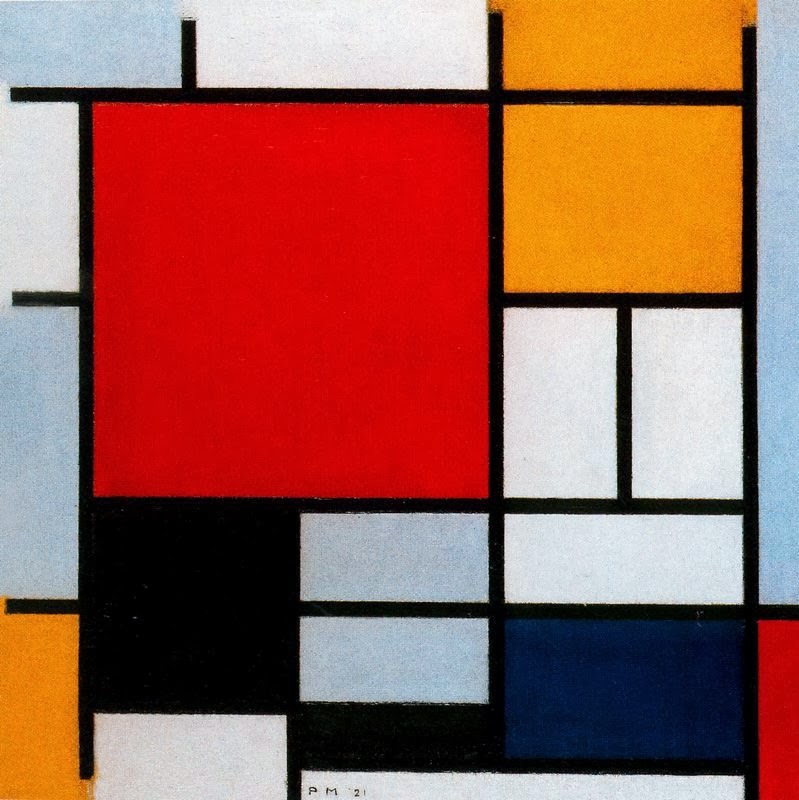This is a transcript of my talk about multiculturalism that I gave to the Secularism 2014 conference in London last week. For a more detailed discussion of multiculturalism, see my Milton K Wong lecture ‘What is wrong with multiculturalism?’ or my extended essay Multiculturalism and its Discontents.
Before we can discuss multiculturalism, we need to distinguish between two processes or phenomena that all too often get confused. On the one hand, the lived experience of diversity; and, on the other, multiculturalism as a political process, or rather a set of political policies, the aim of which is to manage that diversity.
The experience of living in a society that’s less insular, more vibrant and more cosmopolitan is obviously very positive. It’s a case for cultural diversity, mass immigration, open borders and open minds. As a political process, however, multiculturalism means something very different. It describes a set of policies, the aim of which is to manage and institutionalize diversity through the public recognition and affirmation of cultural differences.
We live in a world, so the argument runs, in which there are deep-seated conflicts between cultures embodying different values. Different peoples and cultures have different values, beliefs and truths, many of which are incommensurate but all of which are valid in their own context. Social justice requires not just that individuals are treated as political equals, but that their cultural beliefs are also treated as equally valid, and indeed are institutionalised in the public sphere. As the American scholar Iris Young puts it ‘groups cannot be socially equal unless their specific experience, culture and social contributions are publicly affirmed and recognised.’ The trouble is that such an approach results in people being forced into particular ethnic and cultural boxes, individual needs and rights become defined by virtue of the boxes into which people are put, and the boxes, rather than people’s needs, come to shape public policy. This is a case not for open borders and minds but for the policing of borders, whether physical, cultural or imaginative.
This conflation of diversity as lived experience and multiculturalism as a political process has proved highly invidious. On the one hand, it has allowed many on the right – and not just those on the right – to present the problems of social cohesion as the product of mass immigration and turned minorities into the problem. On the other hand, it has forced many traditional liberals and radicals to abandon classical notions of freedom and liberty in the name of defending diversity. It is critical to defend diversity as lived experience – and all that goes with it such as mass immigration and cultural diversity; this is particularly important as a time when many raise arguments against immigration, especially Muslim immigration, in the name of defending ‘secularism’ or ‘freedom’. It is equally important, however, to oppose multiculturalism as a political process and to oppose, too, the demand that we must recognise, affirm and institutionalise cultural differences in the public sphere.
The irony of multiculturalism as a political process is that it undermines much of what is valuable about diversity as lived experience. When we talk about diversity, what we mean is that the world is a messy place, full of clashes and conflicts. That’s all for the good, for such clashes and conflicts are the stuff of political and cultural engagement. Diversity is important, not necessarily in and of itself, but because it allows us to expand our horizons, to compare and contrast different values, beliefs and lifestyles, make judgments upon them, and decide which may be better and which may be worse. It’s important, in other words, because it allows us to engage in political dialogue and debate that can help create a more universal language of citizenship. But it is precisely such dialogue and debate, and the making of such judgements, that multiculturalism as a political process all too often attempts to suppress in the name of ‘tolerance’ and ‘respect’. The very thing that’s valuable about diversity – the clashes and conflicts that it brings about – is what multiculturalists most fear.
And this brings us to another irony about multiculturalism: multiculturalists insist that society is diverse, but somehow fail to see the diversity of minority communities. On the multicultural map, diversity magically ends at the edges of minority communities. Multiculturalists tend to treat minority communities as if each was a distinct, singular, homogenous, authentic whole, each composed of people all speaking with a single voice, each defined primarily by a singular view of culture and faith. In so doing, they all too often ignore conflicts within those communities. All the dissent and diversity gets washed out. As a result, the most progressive voices often gets silenced as not being truly of that community or truly authentic, while the most conservative voices get celebrated as community leaders, the authentic voices of minority groups.
The Danish MP Naser Khader tells of a conversation with Toger Seidenfaden, editor of Politiken, a left-wing Danish newspaper that was highly critical of the Danish cartoons. Seidenfaden claimed that ‘the cartoons insulted all Muslims’. Khader responded that ‘I am not insulted’. ‘But you’re not a real Muslim’, was Seidenfaden’s response.
‘You’re not a real Muslim.’ Why? Because to be proper Muslim is, from such a perspective, to be reactionary, to find the Danish cartoons offensive. Anyone who isn’t reactionary or offended is by definition not a proper Muslim. Here leftwing ‘anti-racism’ meets rightwing anti-Muslim bigotry. For many leftwing anti-racists, opposing bigotry means accepting reactionary ideas as authentically Muslim.
When I say clashes and conflicts are all for the good, I do not mean, of course, that every clash and conflict is good. Clashes and conflicts over ideas and values and beliefs are often valuable and necessary for social change. In attempting to minimise such clashes in the name of ‘tolerance’ or ‘respect’, multicultural policies do not in practice get rid of conflicts but rather transform political and ideological struggles into cultural and communal clashes. Political struggles unite across ethnic or cultural divisions; cultural struggles inevitably fragment. Political conflicts are often useful because they repose social problems in a way that asks: ‘How can we change society to overcome that problem?’ To view racism politically, for instance, we need to ask, ‘What are its social roots and what structural changes are required to combat it?’ We might disagree on the answer, but the debate itself is a useful one. Another way of putting this is that political conflicts are the kinds of conflicts necessary for social transformation.
Multiculturalism, on the other hand, by reposing political problems as issues of culture or faith, transforms political conflicts into forms that makes them neither useful nor resolvable. Rather than ask ‘What are the social roots of racism and what structural changes are required to combat it?’, it demands recognition for one’s particular identity, public affirmation of one’s cultural difference and respect and tolerance for one’s cultural and faith beliefs. The problem with multicultural policies is not, in other words, that they stress diversity. It is that they possess too rigid a notion of what diversity entails and why it is useful. The consequence is to create the kinds of conflicts that are politically neither useful nor resolvable.
At the heart of multiculturalism is a confusion of political equality and cultural identity. Equality of cultural identity is not the same as political equality. Indeed, it undermines the possibility of any such equality. Political equality requires a distinction between the public and private spheres. The private sphere is inherently unequal. Political equality only becomes possible with the creation of a ring-fenced public sphere, which everyone can enter as political equals, whatever their cultural, economic or ethnic backgrounds. The creation of such a sphere is one of the great advances of modernity. The demand for the public recognition for individual or cultural differences is, on the other hand, a demand to erase the distinction between the public and the private spheres, and hence to undermine the possibility of real equality.
A truly plural society would be one in which citizens have freedom to pursue their different values or practices in private, while in the public sphere all would be treated as political equals whatever their racial, cultural, sexual or faith differences. Today, however, pluralism has come to mean the very opposite. The right to practice a particular religion, speak a particular language, follow a particular cultural practice is seen not as an individual freedom to be defended in the name of liberty but a public good to be enforced through the state. At the same time the rights of individuals to do, speak or even think as they please, their right to challenge or criticise others’ ideas or values or beliefs, are increasingly curtailed by the state in the name of ‘tolerance’ and ‘respect’ and to ensure that different groups are not ‘offended’. The notion of equality has, in this process, has also become transformed, from meaning the right to be treated the same despite one’s differences of culture, ethnicity or faith to meaning the right to be treated differently because of them. It is an odious shift. It’s time we challenged the new reactionary views of both pluralism and equality.
The paintings are Piet Mondrian’s Composition with Large Red Plane, Yellow, Black, Gray and Blue and Grace Gardner’s Black is the Colour of My True Love’s Heat (© Falmouth Art Gallery).



” the most conservative voices get celebrated as community leaders, the authentic voices of minority groups” especially by ignornt outsiders, such as whoever it was in the Law Society that decided to use a Salafist scholar to advise them on how to draw up Sharia wills. And the Law Society’s decision to give Sharia advice in the first place is yet another example of the evils of political multiculturalism. As is the entire Faith School industry.